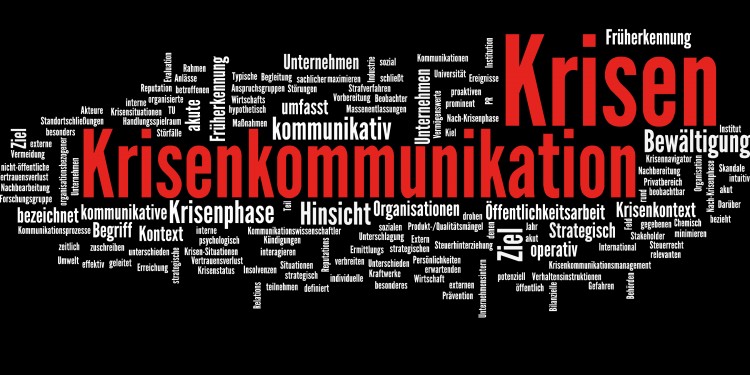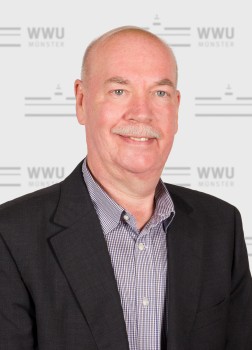
"Crisis communication goes in waves – as in an orchestra, more and more instruments come in"
Research delivers facts and findings. It is not only during these times of the coronavirus pandemic that science communication should ensure that these issues are explained to the general public in an easy-to-understand way. Which communication standards should journalists and scientists observe, especially during a crisis? And what can we learn from the corona situation for any future transfer of knowledge? Prof. Bernd Blöbaum, Executive Director of the Department of Communication at the University of Münster, discusses these questions in this interview with Kathrin Nolte.
What are the things that communicators and scientists should heed as a matter of course in crisis situations? The corona crisis built up slowly. From the point of view of its dynamics and of the consequences for both individuals and society as a whole, this crisis is an exceptional one. Anyone who communicates scientific findings – whether as a scientist or, for example, as a science journalist – does well to follow the rules and routines relevant to the field in question. What this means for researchers is that they should keep to the tried-and-tested standards of their particular scientific discipline and should explain the process of how the knowledge was gained, the methods used and the scope of studies involved. Science journalists must check their sources carefully and then communicate the facts provided in an easy-to-understand way. To this extent, crisis situations are no different in principle from normal times. On the other hand, the pressure of public expectations and attention are much greater in times of crisis.
What characterizes good crisis communication?
Crisis communication should always be easy to understand and, at the same time, take account of the different needs for information which different target groups have. The temporary nature of scientific findings, their contextualization and the social consequences of the communication should be thought about. Trust can only be created in crisis situations when communication takes place in a transparent way, with regard to the truth and on the basis of scientific expertise. In the process, any possible negative consequences must not be withheld.

My colleague Thorsten Quandt and his team have just published an analysis which shows that the media in Germany have reported on the corona crisis in a nuanced way and without dramatizing things. In my own team, and working with communications specialist Volker Gehrau’s team, we carried out a representative survey in the Münsterland in May on the communication of health issues. The survey documents the enormous importance of traditional, established media such as regional newspapers and television in the corona crisis, and it also shows that the communication was indeed successful in that the hygiene recommendations have become part of the everyday behaviour of those questioned, in all age groups. So the crisis communication was evidently not so bad.
What can we learn from the corona crisis for science communication in general?
Crisis communication – and this is shown very nicely by the corona crisis – goes in waves. As in an orchestra, more and more instruments come in. First it was just the virologists who could be seen and heard from the field of science – but then they were joined by the voices of experts from business, politics, education and psychology. Now, after some weeks, what started out as crisis communication has now to a certain extent become normal. There are hardly any corona specials on TV anymore, and other issues are also getting a look-in now. The current crisis has shown very clearly the great importance of social and alternative media. Statements made by established scientists find themselves competing with statements from people with no – or only debatable – relevant expertise. Journalistic information competes for attention with other sources whose statements are not always based on verified facts and which are not published with any due professional care.
And how do we prepare for the next crisis?
In a certain way, crises are a normal state of affairs which are all around us. Before corona, the climate crisis was a big issue, we read about a refugee crisis, we have a crisis of the European Union and in German-American relations, and in the Bundesliga there are always a few clubs in crisis, especially at the end of a season – just to name a few examples. The corona pandemic shows us how important sound scientific work is for understanding and overcoming this crisis with its high threat level and wide-ranging restrictions. Good research and good preparation of the necessary transfer of knowledge from the scientific area to the public are essential for successfully dealing with future crises.
